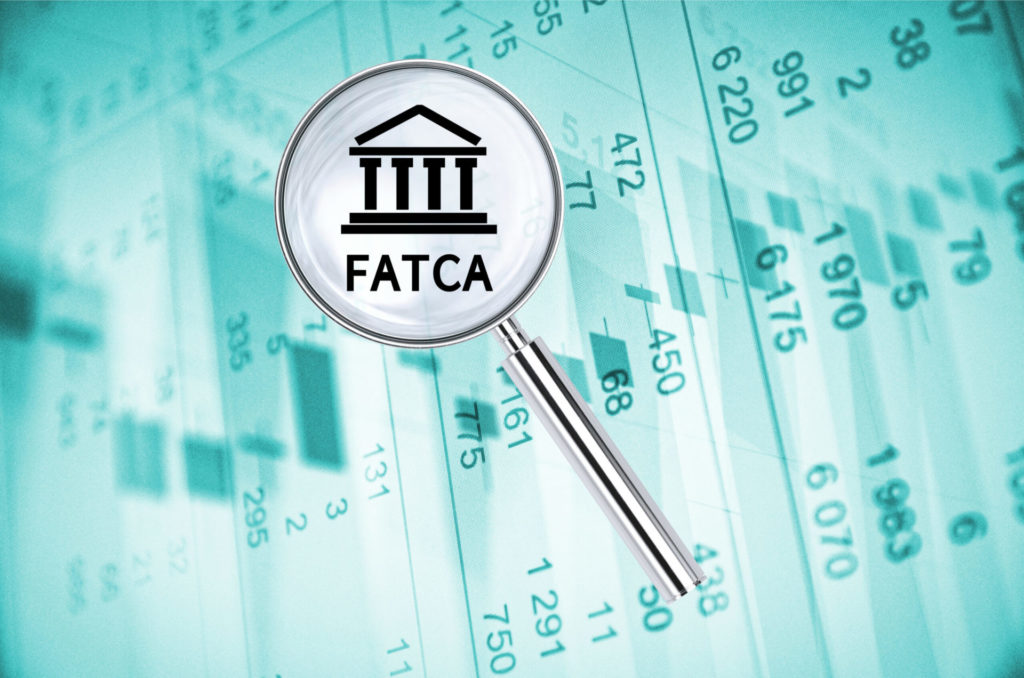As an expat living abroad, it’s likely that at some point, you’ll find it necessary to open a bank account in the country where you’re located. In many countries, having a regional bank account is mandatory when applying for visas, leasing apartments, paying utilities, and receiving paychecks and social benefits.
But you may not have realized that there are some potential tax implications that go along with opening a foreign bank account, as well as additional paperwork that must be filed once tax season rolls around.
We’ve put together a quick guide to get you started. Let’s look at everything you need to know about reporting foreign accounts and assets to stay in compliance with the IRS.
What is a Foreign Bank Account?
The IRS defines a foreign bank account as any financial account at a bank or financial institution located outside the United States that a US taxpayer owns, controls, or has signatory authority over.
Under the broad definitions outlined by the IRS, these can include:
- Checking and savings accounts
- Investment and brokerage accounts
- Mutual fund accounts
- Foreign trust or estate accounts
- Retirement and pension accounts
Some financial account types that are exempt:
- Foreign government benefits (” Social Security”)
- Foreign real estate
- Accounts maintained by a US military account
The types of foreign accounts held and their monetary thresholds will determine the paperwork you must fill out and file during tax season, be it Form 8938, FinCEN Form 114, or both. MyExpatTaxes provides a beginner’s guide to understanding which forms may apply to your specific circumstances.
FATCA:
The Foreign Account Tax Compliance Act (FATCA) is a US federal law that requires US taxpayers to report any financial assets held in foreign bank accounts, such as investment accounts, foreign pensions, foreign business ownership, and life insurance with cash value.
Under FATCA, the IRS also requires foreign financial institutions (FFIs) and certain other non-financial foreign entities to report on any foreign assets held by their US account holders. The IRS receives account numbers, balances, names, addresses, and identification numbers.
Do You Need to File:
Whether you need to file depends on several variables, including account balances and full—and partial-year US residency. The IRS offers a summary of reporting thresholds outlining year-end and peak balances.
If you are a US taxpayer who holds foreign financial accounts, of which the maximum balances of each account cumulatively exceed $10,000 at any point during the year, even if the balance was only $1 over the threshold, you must file a Foreign Bank Account Report (FBAR) on FinCEN Form 114. Your FBAR is separate from your standard US tax return and does not go to the IRS — it is instead filed with FinCEN, the Financial Crimes Enforcement Network. Please note: You must report foreign financial accounts in which you have financial interest and signature authority.
If you are a US taxpayer and your foreign assets exceed $200k (or $400k when married filing jointly), FATCA applies, and you must file Form 8938 (Statement of Specified Foreign Financial Assets) along with your annual tax return. This dollar threshold will be lower if you lived in the US for at least part of the year ($50k if unmarried, $150k when married and filing jointly).
Depending on the types of accounts held and their total balances, some US taxpayers will be responsible for filing both Form 8938 and an FBAR. For more information, consult the IRS’s comprehensive comparison of Form 8938 and FBAR requirements.
Deadlines:
US taxpayers who are required to report foreign assets must file an FBAR through FinCENs BSA E-filing System by April 15th to coincide with tax day for Americans both inland and abroad. Should you miss the filing date, there is an automatic extension until October 15th. This extension does not apply to your overall federal return — you must file for one separately using extension Form 4868 before the June 15th cutoff date.
For those US expats whose assets fall under the FATCA, you must submit Form 8938 along with a completed tax return to the IRS by April 15th. US expats automatically receive an extension till June 15th, which can be extended again until October 15th upon request.
Penalties for not reporting foreign accounts and assets can be quite severe, some of which include both civil and criminal charges, so it’s essential to make sure the proper forms are filled out and submitted to their respective institutions on time.
It’s just a fact of life that being an expat and having to complete extra paperwork go hand-in-hand. Understanding your obligations to report foreign bank accounts and assets is crucial to avoiding penalties and staying in compliance with the IRS. When in doubt, it’s never a bad idea to consult with a qualified Tax Professional specializing in expat tax services to make sure everything is in order. Fortunately, once you get over the initial learning curve involving FBAR and FATCA, filing in subsequent tax years becomes much more straightforward.
Author Bio:
Written by
Nathalie Goldstein, EA, is a leading expert on US taxes for Americans living abroad and CEO and Co-Founder of MyExpatTaxes. She contributes to Forbes and has been featured in Forbes, CNBC and Yahoo Finance discussing US expat tax.
Disclaimer: The content of this article is provided for general informational purposes only and does not constitute legal, tax, or other professional advice. While the author noted above has made every effort to ensure the accuracy of the information, laws and regulations are subject to frequent changes and can vary significantly based on specific facts and jurisdictions. Readers are strongly encouraged to consult with qualified legal or tax professionals regarding their circumstances before making any decisions or taking any action based on the information provided.
Neither the author, the publisher of this blog, nor the website owners assume any responsibility or liability for any errors or omissions in the content, or for any losses, injuries, or damages arising from its display or use. Use of this website and its content is at your own risk.




